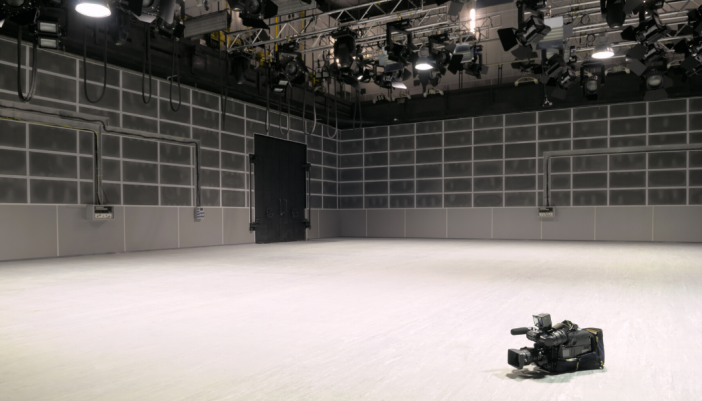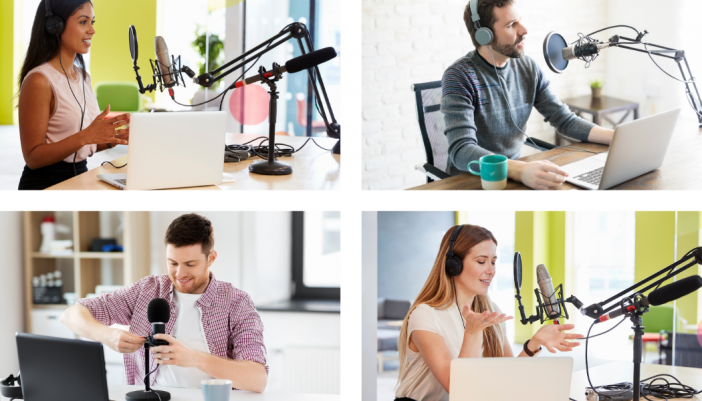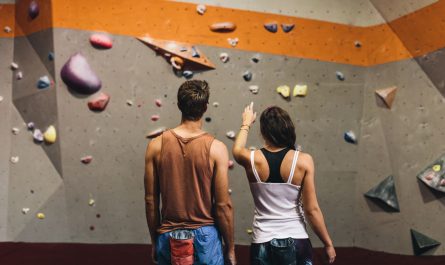
I chose for the fifth post of the blog to understand how the world of podcasting could be affected by the coronavirus. These posts are often more oriented towards new podcasters than experienced ones, but for this special episode, I hope everyone can get an idea.
COVID-19 or coronavirus has been affecting our lives for several months now. This tragic situation that we are forced to experience is disturbing our daily lives in a way that has not been the case for many years. If we are all wondering why the sky is falling on our heads, it is also important to ask ourselves what we could do to maintain our daily lives and ensure that the world as we know it does not change too much.
Of course, the 525,000 podcasts around the world are no exception. Not only is the daily life of these shows disturbed, but the pressure to entertain people forced to stay at home is great. Let’s try to see together what the different challenges are and how they should be dealt with.
Change Management
What affects podcasting and radio broadcasts the most is the desertion of studios. For obvious safety reasons, sound engineers, cameramen and other people working for the smooth running of these shows have to stay at home. Of course, some countries have prepared in advance for this eventuality and have prepared adequate equipment for their employees to facilitate home office (USA, Canada, Sweden…) but other countries or companies may not have the same expertise or their show may not be as well equipped to be easily moved to the home. Other solutions have been to slow down the production schedule and replace it with more up-to-date short features that can be done by one person with simplified equipment. If these solutions will work and ensure continuity in the broadcasting world, a big challenge emerges: how about the quality loss form a studio to home-office equipment?

Audio Quality
It would be a lie to say that the quality of podcasts is not going to go down. Of course, the sound is the most important element when recording, as it is the only thing that is offered to customers. However, it is impossible to ensure audio quality as good as in the studio. The only podcasts that can ensure this are those that share monologues, assuming the author uses a good microphone. Besides, episode editing is also important. A team is normally assigned to take care of this task with professional software. While some of these can be taken home and allow for modifications that inherently improve the quality of the audio, others are no longer available.
So yes, we have to make sure that we can use sophisticated software at home or do with the means at hand such as applications on our smartphones. Of course, the quality of the podcasts will be reduced for the most part but if there is a positive point it is that these shows will continue to offer people who are stuck at home occupation or the continuation of a routine they had by following their daily podcast. This situation could even lead to the creation of new shows or give time to some channels to launch new games or chronicles. The time saved in editing could be given to researching and creating new shows.
What about a podcast boom?
Not really… Since January across the network: Acast there have been 650 episodes which reference “corona” or “COVID” and have been downloaded 16 million times. Several individual coronavirus-related podcast episodes have had over 300,000 listens to each. The most popular day was March 5 where there were over 875,000 listens across coronavirus-related podcasts on Acast’s network… This is a trend that is going on every channel which has a topic related to coronavirus.
On the other hand, the podcasts that kept on going with their usual topics see an overall decrease of downloads of about 20% (source):
Ride Home Media‘s daily shows are seeing an average of 15% fewer downloads. The exception is, of course, Coronavirus Daily Briefing, which “is adding 5,000 downloads every day”, says Brian McCullough.
“Our show, The Unfiltered Gentlemen, is down about 20%. We’ve received feedback in the past that people love listening on their commute, so imagine the numbers will continue to decrease for a while.” – Greg Jones
“The Integrated Schools Podcast: we’re down about 20%. Our last episode didn’t have guests with followings, so that may be part of it.” – Andrew Lefkowits

This is all I found about the effects of the current crisis on the broadcasting world. Of course, it will be interesting to have another deep dive when all this will be over. Will the way we create and share the shows change? Or will we get back to the current podcasting in a studio with very qualified equipment? Who knows…
In the meantime, I will meet you again next week for a podcast with a professional. He will give us some inputs about what is most important for me to accomplish great goals with your show. Stay tuned and healthy.




I would have expected Podcasts to be more successful during a mandatory home-stay! Do you think this might be due to the fact that most people tune in on their commutes to work and home would drive video content more?
Hey Oli, I think it is two things. First, as you said, people are less commuting and there is the knowledge that it is usually when people tune in. And then, people have a lot to do and think about and probably less time to take a bath or lay on the sofa alone to listen to their favorite shows. Many people are home with the family all the time and therefore I guess it is hard to find me-time or simply time for podcast.